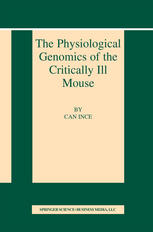

Most ebook files are in PDF format, so you can easily read them using various software such as Foxit Reader or directly on the Google Chrome browser.
Some ebook files are released by publishers in other formats such as .awz, .mobi, .epub, .fb2, etc. You may need to install specific software to read these formats on mobile/PC, such as Calibre.
Please read the tutorial at this link: https://ebookbell.com/faq
We offer FREE conversion to the popular formats you request; however, this may take some time. Therefore, right after payment, please email us, and we will try to provide the service as quickly as possible.
For some exceptional file formats or broken links (if any), please refrain from opening any disputes. Instead, email us first, and we will try to assist within a maximum of 6 hours.
EbookBell Team

5.0
50 reviewsThe physiological genomics of the cardiovascular system studies the relationship between gene and physiological (dys)function. It is a rapidly developing area of research and distinguishes itself from other areas of molecular medicine by its highly integrative nature. In this multi disciplinarian area of the physiological sciences, there is interaction between gene structure and physiological cardiovascular function as well as interactions between the different organs and their physiological compartments. The mouse has played a central role in the study of genomics due to the detailed knowledge of the mouse genome and the wide availability of genetically modified mice. In the past, the mouse had mainly been used in the area of immunology and molecular biology, and physiological interest in the mouse was scarce. As more insight has come into the structural genomics of the mouse, however, it has become increasingly important to understand the relation between gene and physiological function. With this in mind we have been organizing the Amsterdam Mouse Symposia to bring together different disciplines interested in the molecular basis of cardiovascular function (see J. of Clinical and Exp. Pharmacology and rd Physiology (2002) 29:A69-AI02 for the proceedings of the 3 Amsterdam Mouse Symposium and Basic Research in Cardiology (2000) 95:492-535 for nd the proceedings of the 2 symposium).